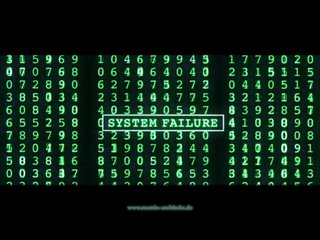--
-
PSALMS
PSALMS are the Jewish prayer-book (Rob Bell called it a "book of poems") that the early Christians used. What's wonderful, refreshing, honest...and sometimes disturbing (to us in the West) is that they cover the whole breadth of life and emotion. They are all technically songs and prayers.. But note how some weave in and out from a person speaking to God, God speaking to a person, a person speaking to himself. Somehow, Hebraiclly, holistically, it all counts as prayer.
...And as "song" Note in your Bible that several psalms have inscriptions which give the name of the tune they are to be prayed/sung to. Some seem hilarious, counterintuitive, and contradictory, but again not to a Hebrew mindset and worldview, with room for honesty, fuzzy sets and paradox:
- Psalms (click) with the line "Destroy my enemies", "break their teeth!!" ... To be sung to the tune of "Do Not Destroy" !!
- Psalm 22, a depressing ditty about someone in the throes of rejection despair and death. To be sung to the tune of "Doe in the Morning" ??
Can you name contemporary songs where the music doesn't seem to fit the lyric? Down lyrics to upbeat music? Vice Versa? How might that be healing/helpful/Hebrew/holy? and not Hellenistic?
Remember the Bono quote:
Click here for the audio (or watch here on Youtube) of this delightful statement by Bono:
"God is interested in truth, and only in truth. And that's why God is more interested in Rock & Roll music than Gospel... Many gospel musicians can't write about what's going on in their life, because it's not allowed . they can't write about their doubt....If you can't write about what's really going on in the world and your life, because it's all happy-clappy... Is God interested in that? I mean, 'Please, don't patronize Me! I want to go the Nine-Inch-Nails gig, they're talking the truth!
-Bono
From a 2003 discussion with New York Times, more audio here
"The Jewish disciples all worshipped Jesus, and some of those worshippers doubted." (matthew 28:17)
---------
There are several ways to categorize the psalms.
The first is the way the Bible itself does: Psalms is broken down into 5 "books" Hmm, 5...does that sound familiar? Name another book with 5 sections and suggest an answer for "Whats up with the number 5?"
Note the 5 sections are not comprised of different kinds/genres of psalms..but the styles and kinds are "randomnly"
represented throught the book..
kind of like life..
Here is one way to categorize the styles and genres:
- lament
- imprecatory
- praise
- thanksgiving
- petition
Walter Brueggemann suggests anotherhelpful way to categorize the Psalms.
Orientation:
o Creation - in which we consider the world and our place in it
o Torah - in which we consider the importance of God's revealed will
o Wisdom - in which we consider the importance of living well
o Narrative - in which we consider our past and its influence on our present
o Psalms of Trust - in which we express our trust in God's care and goodness
q Disorientation:
o Lament - in which we/I express anger, frustration, confusion about God's (seeming?) absence
§ Communal
§ Individual
o Penitential - in which we/I express regret and sorrow over wrongs we have done
§ Communal
§ Individual
q Reorientation
o Thanksgiving - in which we thank God for what God has done for us/me
§ Communal
§ Individual
o Hymns of Praise - in which we praise God for who God is
o Zion Psalms- in which we praise God for our home
o Royal Psalms - in which we consider the role of political leadership
o Covenant Renewal - in which we renew our relationship with God
-Bruggeman, source Click here.note how astonishingly HONEST the prayer/worship book of the Jews (and Christians) is!
-
We watched excerpts of Rob Bell's "Drops Like Stars" He follows a similar pattern:
- The Art of Disruption
- The Art of Failure
Rob Bell: Drops Like Stars Trailer from Creo Productions on Vimeo.
-
We'll spend some time on the "three worlds" of Psalm 22, which Jesus quotes honestly on the cross:
Here (click title below) 's a sermon on Psalm 22, which is another amazing psalm to use in a worship setting...How often have you heard "My God, My God, Why have You forsaken me?" Or "God, where were YOU when I needed you!!"
(see
and
in a church song?
Yet how familiar is the very next psalm: 23.
Life is both Psalm 22 and 23...sometimes on the same day, in the same prayer.
If we think both/and...we think Hebrew.

Here's a link with several of the stories and illustrations I talked about tonight Iike the speaker who said "I almost didn't come tonight",,
Click the title:
"The Lord Be With You...Even When He’s Not!"
----
Phinal Philemon prep:
we watched the NT Wright video on Philemon (linked on the "Philemon Help" tab above, and worked through (in pairs). pp 24 an 26 of the student guide (Three Worlds of Philemon)..
Bring magazines next week!






















